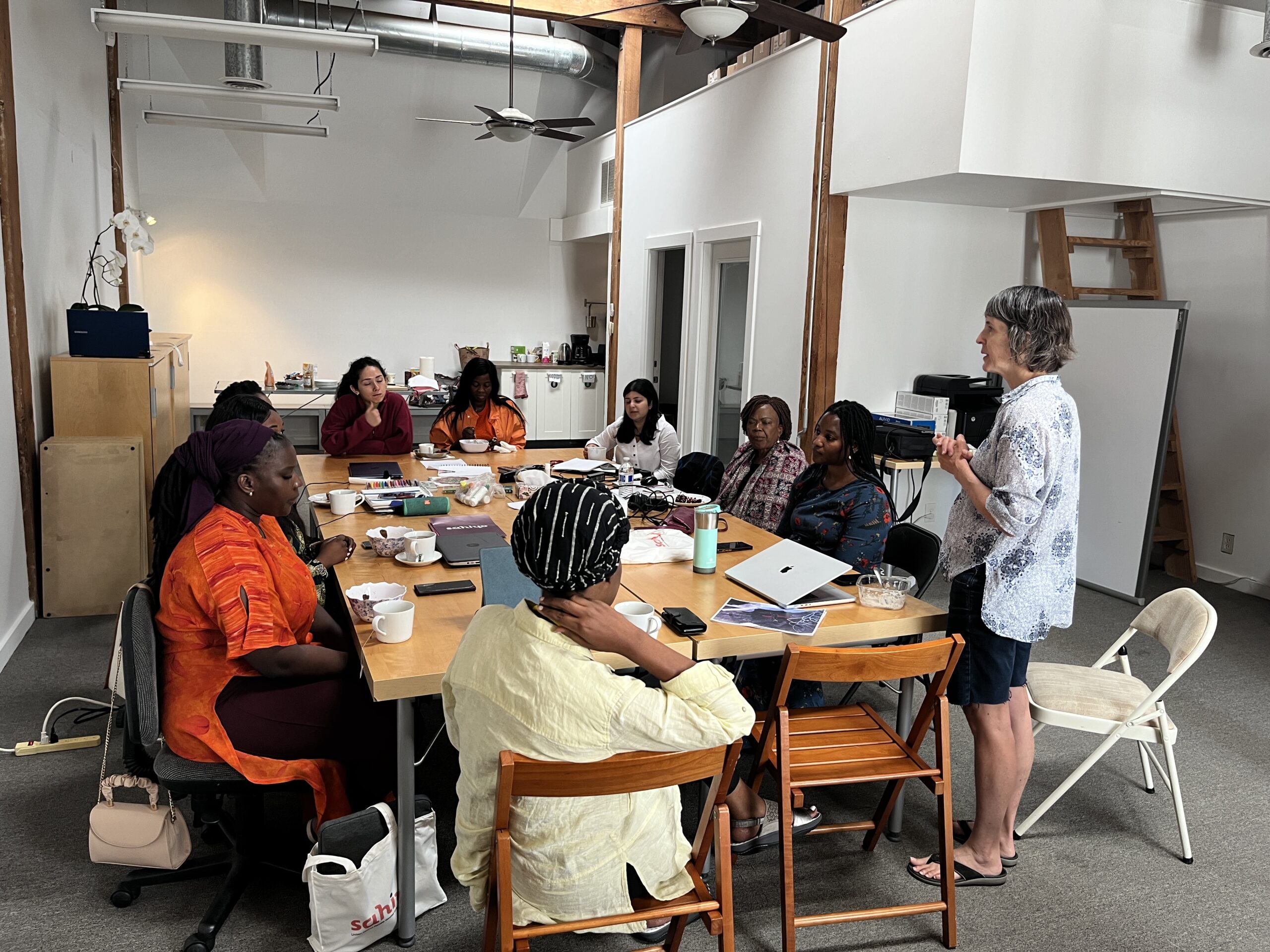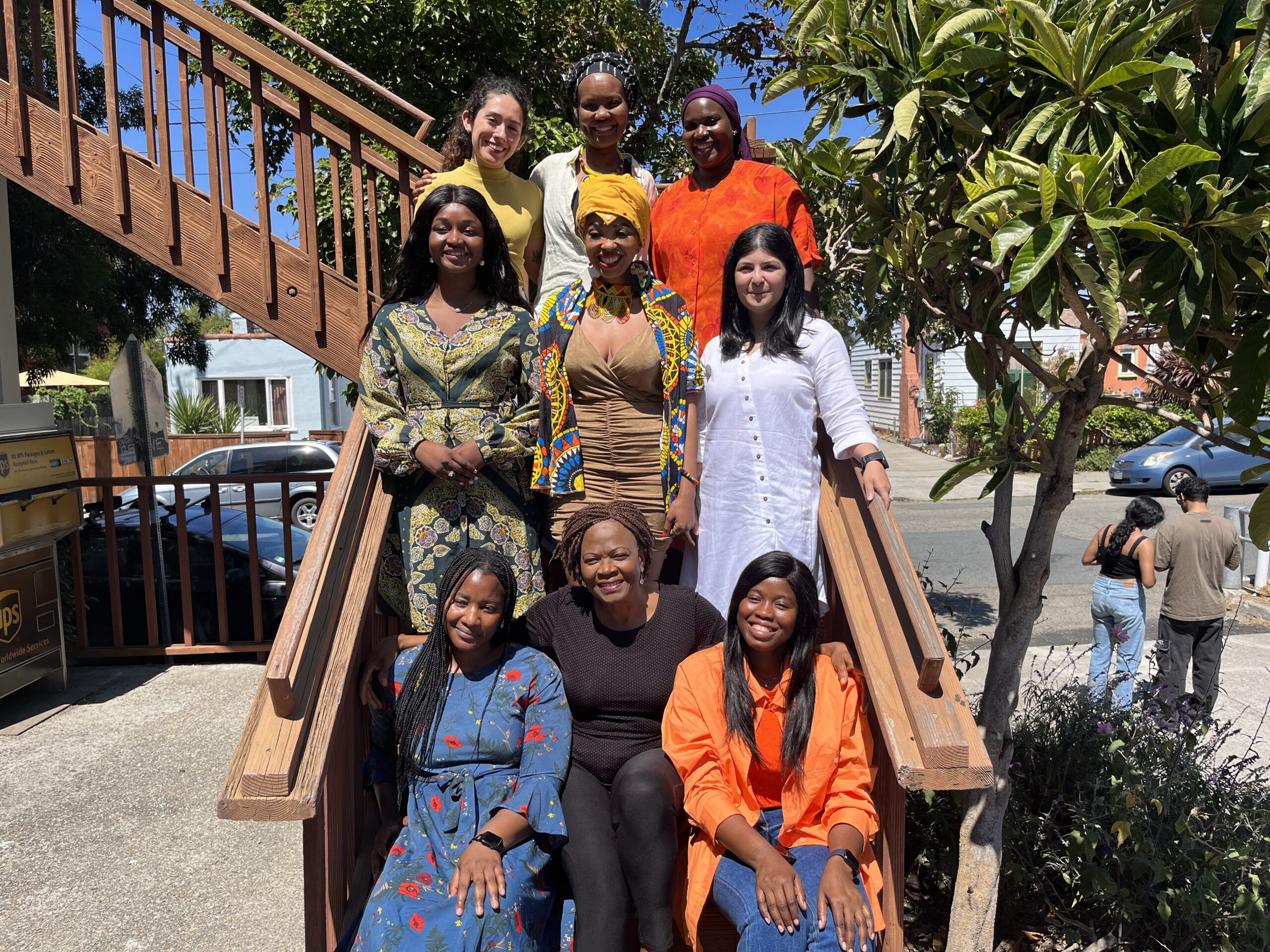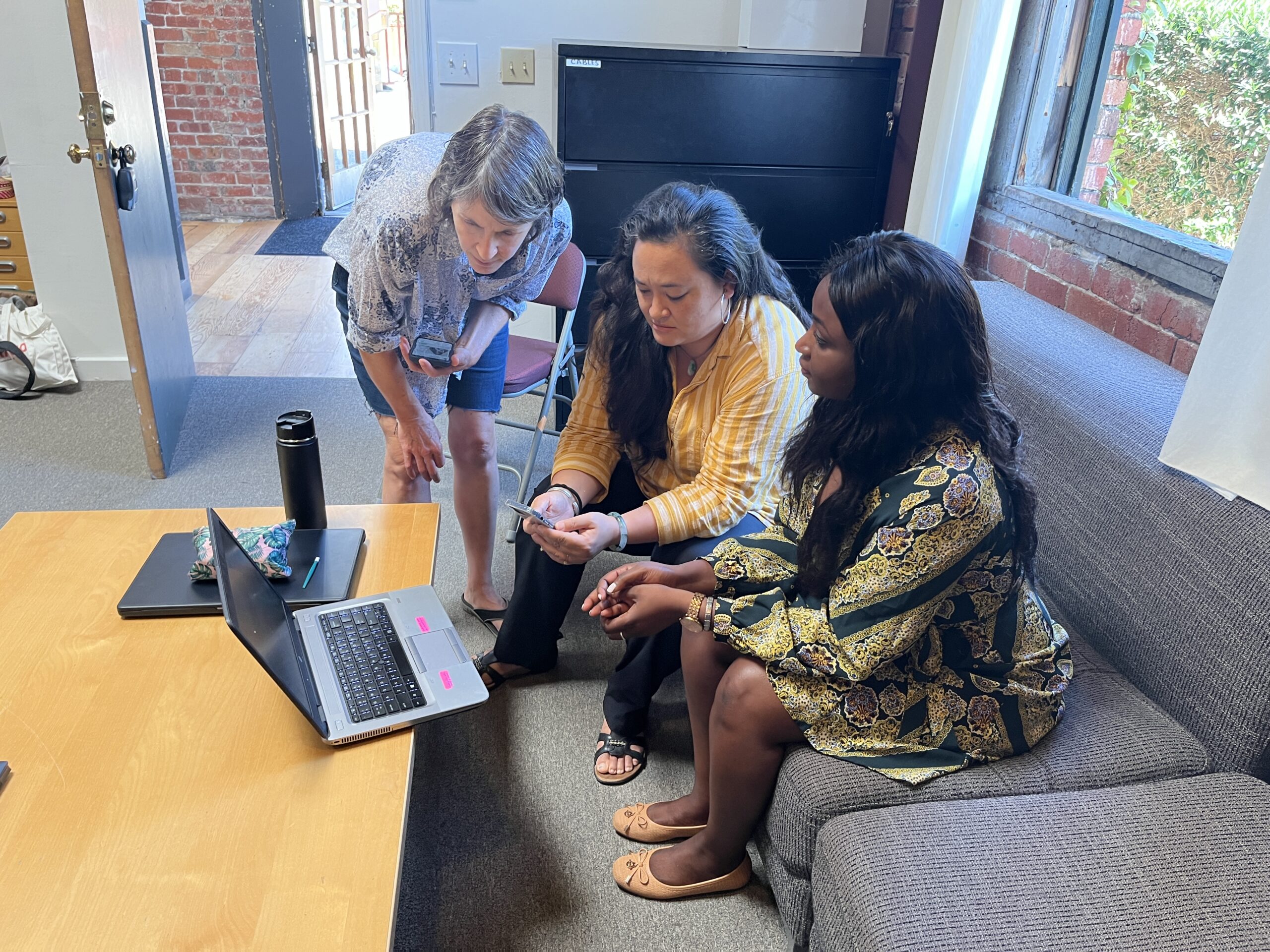Background
- Voices to End FGM/C Website
- Background
About Us
- Voices to End FGM/C Website
- Background

Since 2018, Voices to End FGM/C has engaged survivors and activists in the U.S. and around the world in telling their personal stories of female genital mutilation/cutting (FGM/C). Using a participatory media production process called digital storytelling, we support our storytellers in healing, connecting in solidarity, and growing as leaders in the movement calling for an end to this harmful practice.
To date, Voices has hosted a total of 9 workshops using a combination of in-person and virtual methods. Some storytellers had only recently learned they had been subjected to FGM/C and were grappling with its emotional and physical impacts, while others had struggled for years and were already deeply involved in advocacy to prevent it from happening to other girls. Central to our trauma-informed workshop approach is a Story Circle process that enables each storyteller to claim agency over the telling of their story, as they explore and share memories of pain, courage, anger, and action. By bearing witness to each other’s stories, the workshop groups forge strong bonds that continue after they complete their videos. The Voices program then partners with our storytellers on opportunities to publicly share their stories. Though each digital story produced in Voices reflects a different perspective, the collection is woven together through shared experiences and a united sentiment: creating a critical mass of voices needed to prompt social change and end FGM/C across the globe.
Voices To End FGM/C grew out of Sahiyo cofounder Mariya Taher’s own experience as a survivor. Having undergone FGM/C at seven years old, Mariya recognized that as an American-born woman of South Asian descent, she was not included in the official data on FGM/C. At a Silence Speaks workshop in 2016, Mariya created a three-minute digital story, titled Shattered Silences, to share her experience with the larger world in the form of a short video. In this powerful story, Mariya speaks candidly about being a survivor of “vacation cutting”– when U.S.-born children are taken out of the country to visit family members in parts of the world where FGM/C is not yet illegal. She also highlights the importance of storytelling for bringing conversations about cutting out of the silence, shifting the cultural norms that condone it, and pushing for an end to all forms of FGM/C.
Following the release of Mariya’s video on social media in 2018, Sahiyo and Silence Speaks partnered on a digital storytelling workshop called Sahiyo Stories, which brought together survivors of FGM/C living in the United States. This first set of videos explores a united sentiment: that the sharing of personal stories is crucial to building a critical mass of voices from within practicing communities calling for the abandonment of this harmful practice.
After the release of this intial set of videos, Sahiyo and Silence Speaks renamed the project Voices to End FGM/C and sought funding to expand it. With support from the Wallace Global Fund, ViiV Healthcare, and the George Washington University Milken Institute School of Public Health, Voices has held eight additional workshops between 2018 and 2023. Our storytellers are diverse in race/ethnicity, age, and citizenship/residency status, and their perspectives reflect the myriad ways that FGM/C impacts women’s lives. Following is a summary of each workshop.
Inaugural Workshop (Sahiyo Stories) – May 2018
Called Sahiyo Stories at the time, this first workshop specifically engaged women who had experienced FGM/C, were residing in the United States, and were willing to speak publicly using their real names. (Subsequent workshops have allowed storytellers to go unnamed or use a pseudonym). Our intention was to work with women who were comfortable with being public in their stories, as a way of challenging the shame and stigma that can surround FGM/C and supporting public discussion on the issue. This approach encouraged additional survivors and community members to engage in the project going forward.
Pilot Online Workshop – June 2019
In 2019, Sahiyo and Silence Speaks won first prize in the Positive Action Challenge to End FGM competition funded by ViiV Healthcare. This allowed us to pilot an online digital storytelling workshop so that survivors from around the world could participate. The workshop took place from June to August 2019, with the videos released on February 6th, 2020, International Zero Tolerance Day on FGM/C. Women from a variety of countries took part, including Bahrain, India, Singapore, Sweden, Tanzania, and the United Kingdom. The workshop also connected with women artists and illustrators to support storytellers in creating images for their videos.
Wellness & Storytelling Workshop – September 2019
This workshop brought together another nine people and took place in September 2019, in Asheville, North Carolina. In recognition of the need to support survivor and advocate wellbeing, given that discussing FGM/C can resurface old trauma for survivors, we partnered with local Asheville nonprofit Threads for Wellbeing to provide storytellers with a holistic approach that looked after storytellers’ mental health throughout the workshop. Threads For Well-Being works with refugee and immigrant activists and survivors of gender-based violence to promote self-advocacy, build emotional and mental health awareness, and encourage daily self-care to create positive social change. For the workshop, an on-site, licensed psychotherapist remained on standby if needed, and participants engaged in numerous self-care activities, including yoga, massage, and reiki. In this workshops, we saw our first male participant as well, who shared his story of learning that FGM/C had occured to his mother and sister.
Health Professionals Workshop – December 2019
As a result of a 2018 screening of the original Sahiyo Stories hosted by the U.S. End FGM/C Network in Washington D.C., the George Washington University Milken Institute School of Public Health approached Sahiyo to conduct an additional digital storytelling workshop. This iteration of the workshop brought together survivors who were willing to share stories of their healthcare experiences as a result of disclosing their FGM/C and healthcare professionals who have worked with survivors. The emphasis of this workshop was on creating digital stories that can serve as teaching tools, in order to train health professionals to provide more sensitive and culturally appropriate care to survivors.
Advocates & Survivors Workshops – January 2021 and January 2022
In January and February 2021 and 2022, we hosted our fifth and sixth workshops. Due to the COVID-19 pandemic and our desire to continue reaching a global audience of storytellers, we held both sessions virtually, connecting with participants via weekly Zoom sessions and over email and WhatsApp. We recruited individuals based across North America and around the world, and we accepted applications from not only survivors, but also family members, friends, advocates, and others of any gender identity who have been impacted by FGM/C or involved in advocacy work to end it. In particular, our 2022 workshop was the first time we had storytellers who identified as being non-binary survivors of FGM/C participate.
Advocates & Survivors Workshops – October 2022
In Fall 2022, we hosted our 7th workshop virtually with 8 participants over a 6-week period which resulted in 7 new videos. The digital stories from this workshop reflected on themes of allyship, sexuality and dating, losing trust, and navigating the healthcare system. Some of the participants had the opportunity to work with a digital sketch artist to illustrate their stories as they wanted them to be portrayed.
Advocates & Survivors Workshops – August 2023
In August 2023, we hosted our first hybrid-format Voices to End FGM/C Digital Storytelling Workshop. Since the Covid-19 pandemic began, we had not gathered in-person for the Voices workshop. The workshop began with two virtual sessions, fostering a profound sense of community and connection as participants joined online from all across the United States. For the in-person segment, participants met in Berkeley, California to immerse themselves in the enriching, hands-on experience of the Voices workshop.
Advocates & Survivors Workshops – May 2024
In May 2024, we hosted our second hybrid-format Voices to End FGM/C Digital Storytelling Workshop. The storytellers and facilitators meet over two virtual sessions, discussing motivations for participating in the workshop and the narratives being brought to life. For the in-person segment, all 10 storytellers gathered in Washington D.C. at George Washington University, for the hands-on segment of the workshop, involving recording the scripts and piecing together the visual elements of their stories.
Voices to End FGM/C
Voices to End FGM/C is mobilizing a critical mass of storytellers and activists from across the globe by bringing them together to share and heal from female genital mutilation/cutting (FGM/C), connect and grow as leaders, and create short videos calling for an end to this harmful practice.
Email: info@voicestoendfgmc.org
Silence Speaks
Sahiyo
Copyright © 2024 Voices to end FGM/C. All Rights Reserved. Developed by thesilverkick.co & studiopetrov.com


